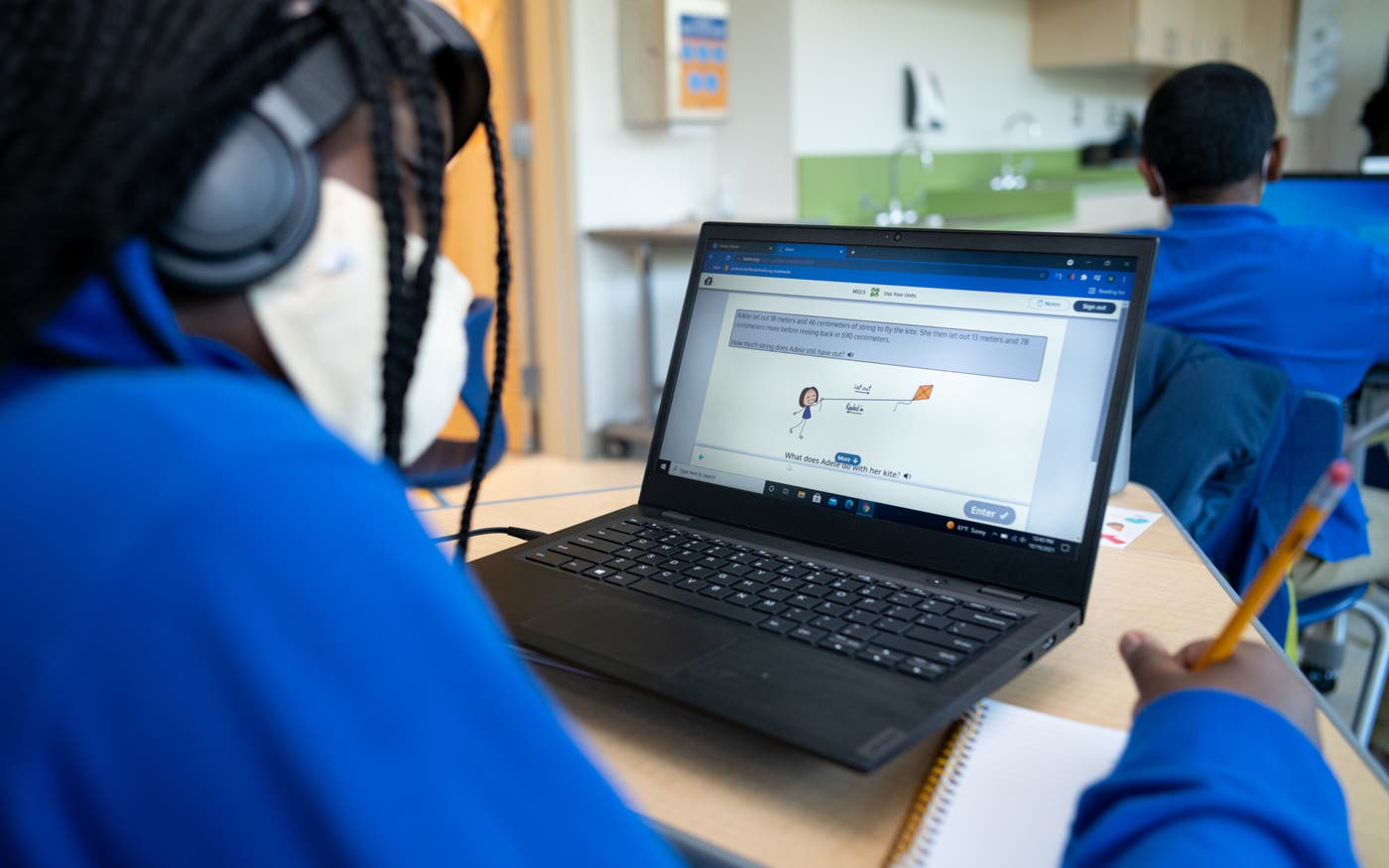
Math problem
More students flunk this high school course than any other
Students have called this math course “torture,” but here are some ways to improve it.

Can you name the most frequently failed high school course?
It’s a subject that students have called “difficult,” “challenging,” and, at times, “torture.”
Yes. It’s a math class.
And if you guessed Algebra, you’re right.
The fact that so many students struggle with Algebra is a real problem because it’s a class that has far-reaching impacts on their lives. Here’s why.
Algebra is one of the most important indicators of a student’s future success. Students who pass Algebra 1 by the end of 9th grade open the door to advanced STEM courses and AP classes, and are more likely to enroll in college, graduate with a Bachelor’s degree, and go on to well-paid, in-demand careers.
Conversely, for students who fail Algebra 1, the door to opportunity often closes. Students who don’t complete Algebra 1 have just a one in five chance of graduating from high school. This is a statistic that particularly affects students who are Black, Latino, English learners, or experiencing poverty, putting them at a disadvantage for future careers and higher earnings. And during COVID-19, these students are facing greater uncertainty and challenges academically because of widespread disruptions to schooling.
This is tragic. Algebra shouldn’t act as a gatekeeper, limiting a student’s dreams. It should be a gateway, helping students realize them.
That’s why the Gates Foundation sought the brightest minds around the world to help solve what may be the hardest math problem in the world: How can we help more students succeed in Algebra—and maybe get them to like it?
Last year, we issued a global call—through our foundation’s Grand Challenges program—for new ideas to make Algebra more engaging, accessible, and relevant for all students. Until now, Grand Challenges has been used to spur new thinking to solve the toughest problems in global health and development, helping to save millions of lives. Given what’s at stake for our students, however, we decided this Algebra problem deserved a Grand Challenge of its own that would shake up traditional ways of thinking and find new breakthroughs in teaching this math class.
The world responded with lots of exciting ideas—more than 400 proposals from 26 countries. Earlier this year, we selected 11 of the most promising ones to receive funding to develop their solutions.
Algebra is overwhelming for many students because it’s the first math class they take where they must wrestle with variables, abstract concepts, and creative problem solving. And there’s often not enough done in the classroom to connect Algebra to their everyday lives and explain why it’s worth understanding.
Each of the organizations with a promising proposal found creative ways to tackle these Algebra challenges. I encourage you to read about all the grantees. But I want to highlight three of them to illustrate the range of innovative solutions that are in development.
Zearn is the nonprofit educational organization behind the top-rated Zearn Math curriculum that is used by about 25 percent of elementary school students in the U.S. Zearn is proposing to build a new curriculum for middle school students that will help prepare them for success in Algebra 1 in high school. Like its existing platform, this course will strive to make Algebra preparation engaging and fun with videos, math problems with interactive digital experiences, and digital exercises that help students visualize and make sense of math. Zearn is creating these materials and activities in collaboration with students, especially Black, Latino, and students experiencing poverty, to ensure they motivate learning and promote inclusivity.
Mastory is a German-Hungarian startup that is developing interactive storyline games to help students understand why Algebra is relevant for solving real world problems. Using a mobile phone app, students will be immersed in a real-time sci-fi adventure involving a professor, a research vessel in search of whales, and aliens. Along the way, students will use the Algebraic concepts they are learning in their classroom to find solutions to the challenges experienced in the story. The goal is to keep students engaged and motivated by helping them grasp math at an emotional level.
The Rhode Island Department of Education (RIDE) is creating an Algebra Readiness Course to prepare multilingual learners in Providence for Algebra 1. RIDE has already successfully piloted a summer Algebra course that was developed in partnership with students to strengthen their math skills using real world examples. Kids who enrolled in the summer course saw significant increases in their math readiness scores. Now, this course is being expanded to a full semester in six middle schools in Providence. Work is underway this year to continue to improve the curriculum and provide more professional development and coaching for teachers so they can better support multilingual learners.
I was thrilled to learn about the many new innovations sparked by the Algebra Grand Challenge. By changing students’ Algebra experience, maybe even making it a class they enjoy instead of dread, we can help all students develop critical thinking, abstract reasoning, and other problem-solving skills that use their math skills to understand the world. In the years ahead, I look forward to learning how these efforts to improve this critical math course will open doors for many more students in school and beyond.


